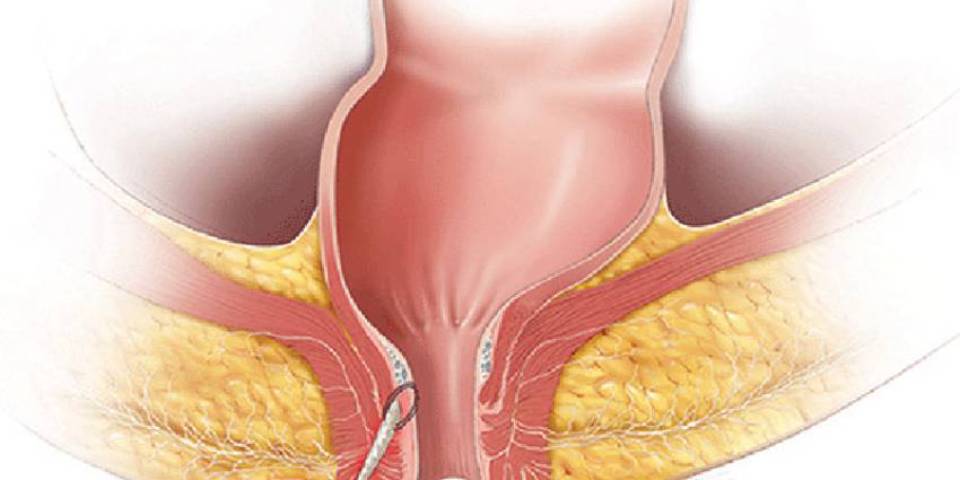Menu

An anal fistula is a painful disease that can lead to significant discomfort and difficulties if not addressed early. It occurs when an abnormal tunnel forms between the rectum and the skin around the anus, often resulting from infections or abscesses. While fistulas can develop for various reasons, there are steps you can take to minimize the risk. Dr. Samrat Jankar, fistula specialist in Pune at Kaizen Fistula Care Clinic, shares essential tips to help you prevent fistula formation.
Dr. Samrat Jankar is a leading expert in the treatment of anal fistulas and other colorectal conditions at Kaizen Fistula Care Clinic. With 15+ years of experience and a patient-centric approach, Dr. Jankar provides advanced care for individuals suffering from fistulas, ensuring effective management and recovery.
Understanding Anal Fistula Formation:
Most anal fistulas develop after an abscess forms in the anal region due to infection. The infection produces a cavity filled with pus, and if untreated, it can create a fistulous tract. Other factors that increase the risk of developing a fistula include inflammatory bowel diseases (IBD) such as Crohn’s disease, trauma to the anal region, and a weakened immune system.
By maintaining good hygiene and following proper health practices, the chances of fistula formation can be minimized.
Key Steps to Prevent Anal Fistula:
- Maintain Good Anal Hygiene: Maintaining the anal area clean and dry is crucial in controlling infections that can lead to fistula formation. Regularly wash the area with warm water and mild soap, and ensure it is thoroughly dried afterward to avoid bacterial buildup.
- Treat Infections and Abscesses Promptly: If you experience an abscess or any symptoms of infection, such as pain, swelling, or discharge near the anus, seek prompt medical attention. Early treatment of abscesses is essential to prevent them from progressing into fistulas.
- Prevent Constipation and Straining: Chronic constipation and straining during bowel movements increase the pressure on the anal area, leading to irritation and the risk of infection. To prevent constipation:
- Eat a diet rich in fiber.
- Stay hydrated by drinking plenty of water.
- Exercise regularly to promote healthy bowel function.
- Manage Digestive Disorders: Conditions such as Crohn’s disease and ulcerative colitis significantly increase the risk of developing anal fistulas. If you have a digestive disease, work closely with your healthcare provider to control your condition and decrease inflammation that could contribute to fistula formation.
- Avoid Trauma to the Anal Region: Trauma, whether from surgery, injury, or medical procedures in the anal area, can increase the risk of infection and fistula development. It’s crucial to consult experienced healthcare professionals for any procedures involving this region and follow proper post-care instructions.
- Strengthen Your Immune System: A strong immune system helps your body fight off infections and prevent abscess formation. Eat a balanced diet rich in vitamins and minerals, get adequate sleep, and relieve stress to keep your immune system healthy.
- Avoid Prolonged Sitting: Sitting for long periods, mainly on hard surfaces, can irritate the anal area and increase the risk of infection. If your job requires prolonged sitting, take breaks to stand and walk every hour, and consider using a cushion to reduce pressure on the area.
- Don’t Ignore Anal Discomfort: If you experience discomfort, itching, or pain around the anus, do not ignore these signs. Early symptoms of an anal fistula or abscess may include swelling, pus, or bloody discharge. The sooner these symptoms are addressed, the easier it is to treat the issue before it escalates into a fistula.
When to Seek Help?
Despite preventive measures, if you experience signs such as persistent pain, swelling, or drainage near the anus, it is important to seek professional medical advice. Early detection and treatment can prevent complications and decrease the likelihood of surgery.
At Kaizen Fistula Care Clinic, Dr. Samrat Jankar specializes in the diagnosis and treatment of anal fistulas using advanced, minimally invasive techniques. If you’re experiencing symptoms or would like more information about fistula prevention, schedule a consultation with us today.
Conclusion:
Preventing anal fistulas starts with maintaining proper hygiene, managing digestive health, and addressing any infections promptly. By embracing a healthy lifestyle and staying alert about changes in your anal health, you can significantly decrease the risk of developing this painful condition.
If you have any concerns or symptoms, seek expert care from Dr. Samrat Jankar at Kaizen Fistula Care Clinic for timely treatment and guidance.
Recent News

Constipation and Fistula relation? How Constipation
7th January 2025
Living with Fistula in Ano: Understanding
20th December 2024
Diet after Fistula-in-Ano Surgery: Essential Tips
13th December 2024
The Role of Hygiene in Preventing
10th December 2024
The Benefits of PILTEC: Advancements in
4th December 2024
Preventing Recurrence of Anorectal Fistulas After
14th November 2024
Why Do Anal Fistulas Recur? Understanding
21st October 2024
Preventing Fistula Formation: Key Steps to
9th October 2024
Different Types of Anorectal Fistula: Understanding
26th September 2024
Benefits of the Fistula Plug Procedure
14th September 2024Location
Contact info
- Kaizen Gastro Care, Shop no. 208 / 209, Oriana Crest building, Datta mandir road, Opposite Costa Rica society, Wakad, Pune - 411057
- gastrosamrat@gmail.com
- 097636 35252 / 075584 23708
Fistula Cure
Quick links
© 2024 Kaizen Fistula Care All rights reserved

